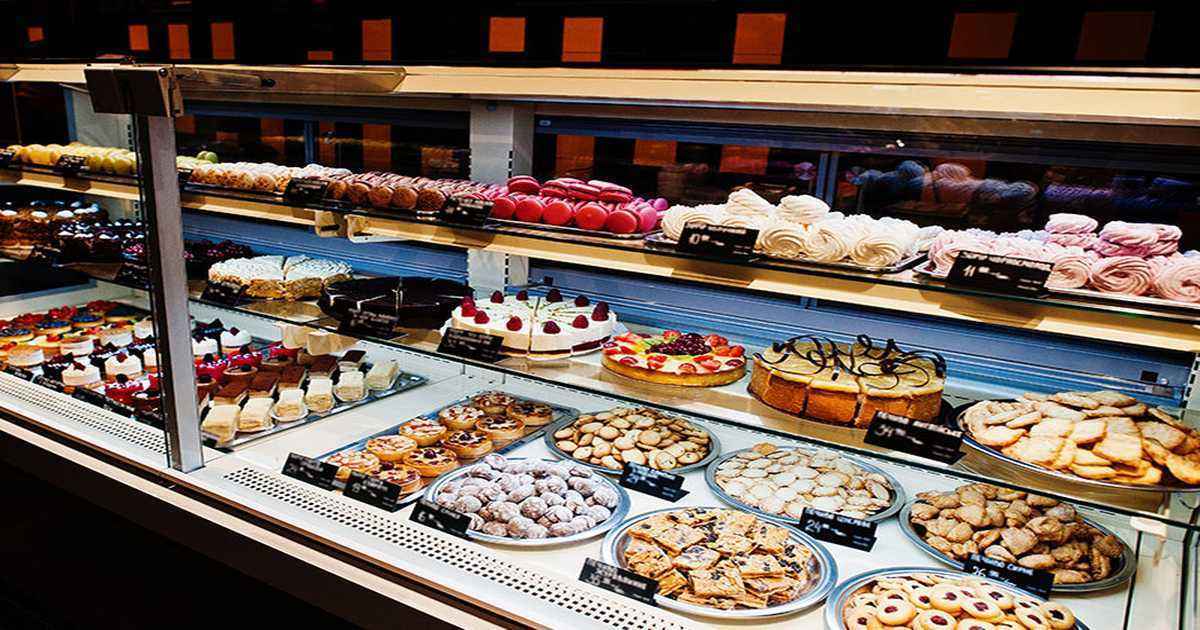What is Bakery ERP?
Bakery ERP helps manage the core businesses of bakeries. It streamlines and scales up its operations by providing various modules that assist with production, quality, inventory, warehouse, sales, and compliance management.
It is a subset of ERP software that offers capabilities to plan and manage bakery operations and help in decision-making. It displays real-time information collected from various departments.
Overview of the Bakery Industry in India
The Indian bakery market is worth $11.3 Billion as of 2022, specializing in different bakery products such as bread, cakes, cookies, and pastries. It is expected to reach $21.2 Billion by 2028, with a CAGR of 10.8%.
Several factors are driving this change:
- Growing Indian population
- Urbanization and the increasing popularity of Western food
- Rise of organized retail stores in cities with affordable prices and attractive marketing offers
- The advent of doorstep food delivery using e-commerce food delivery platforms
- Availability of specialty bakery items such as low-sugar, vegan, organic and gluten-free products for health-conscious customers
You May Also Like: Food Traceability Software for Food Safety & Quality Control
Challenges Faced by Bakery Industry
-
Increasing Competition
As with any other industry, the bakery industry faces tough competition. Bakeries must conduct SWOT (Strengths, Weaknesses, Opportunities, and Threats) Analysis from time to time to stay ahead of others. They also have to use competitive prices to retain their shrinking customer base.
-
Rising Ingredient Costs
Different factors determine the prices of bakery products. One of those is the cost of ingredients. With the rising cost of ingredients such as sugar and dairy products, baking companies have to find new ways to mitigate their impact.
-
Limited Shelf Life
Seasonal demand fluctuations are often difficult to manage for businesses. Since many bakery products have a limited shelf life, a sudden drop in demand can cause supply chain issues and production waste.
-
Hygiene and Food Safety
Hygiene and safety are key parts of bakery management. Bakery businesses have to provide timely training to their employees to maintain high standards of hygiene, take appropriate measures to uphold food safety, and comply with various local laws and regulations.
Future Trends of Bakery ERP Software
-
Health-conscious Bakery Products
Thanks to increasing awareness about health-conscious food, fitness, and a preventive approach to diseases, many young Indians are becoming increasingly health-conscious. There is a greater demand for bakery products that cater to their specific health and dietary needs.
-
Innovative Flavors
Food innovation comes in many forms. There is a significant shift towards bakery products with innovative flavors. Bakeries are trying out unique combinations of ingredients in response to the changing eating habits of young Indians.
-
Sustainable Practices
Food production has many negative effects on the environment, such as soil degradation, water scarcity, and climate change. Several world bodies, including the European Commission, are assessing various ways to minimize the environmental impact and reduce waste.
-
E-Commerce Services
In recent years, India has seen significant growth in e-commerce services that offer convenient doorstep delivery options to customers. To reach a wider customer base and target a diverse demographic user base, bakery companies work around the clock and transform the way they traditionally sell their food products. It has become imperative for businesses to train their employees to establish a strong online presence, make use of social media, fulfill online orders, and help customers with failed online payment processing.
Features of Bakery ERP
-
Recipe Management
Food manufacturing ERP software helps bakeries track the ingredients, dynamically adjust recipes, generate an FDA-approved nutritional fact panel, and prioritize customer orders with batch production functions. As a result, they become more responsive when dealing with seasonal demand fluctuations.
-
Flexibility
Much like other food manufacturing companies, each bakery has its own unique requirements. These requirements may vary depending on the food type, business size, management strategies, and local laws and regulations. Bakery production software is built to meet the unique requirements of each baking company.
-
Traceability
Bakery software has a built-in inventory management system that tracks everything that moves through the production facilities to the final delivery to the customer with the help of Internet of Things (IoT) sensors and other means. Moreover, supply chain management in ERP optimizes product delivery using map integration and smart navigation features.
-
Financial Management
Business Management Software for the bakery industry provides a single, unified interface for your company’s financial needs, regardless of whether you have a single outlet or multiple outlets at multiple locations. The comprehensive financial management system makes credit management, revenue tracking, and payment scheduling easier.
-
Point of Sale (PoS)
Bakery software is also capable of integrating with dedicated PoS devices using Web services and other means for better management, effective sales tracking, and enhanced reporting. Your data from PoS devices will be viewable in ERP, and vice versa.
Benefits of Bakery ERP
-
Enhanced Food Quality
In a fast-paced industry like baking, bakery production software plays a significant role in preventing food safety emergencies. To ensure that bakery products are safe for consumers, it automates various food quality inspections and tracks safety information, expiration dates, and compliance certifications of the ingredients used.
-
Reduced Production Wastage
Bakery production software develops lean production strategies by cutting costs and reducing waste. It consistently monitors the production line to detect and notify it of any malfunctions to limit the extent of damage and reduce production waste.
-
Develop Realistic and Efficient Marketing Strategies
One of the key benefits of using bakery software is that it helps bakeries perform “what if” cost analysis to avoid the potential consequences of disastrous marketing decisions. Bakery companies can develop realistic and efficient production and marketing strategies that reduce costs and maximize profits.
-
Demand Forecasting
Bakery products have a limited shelf life. On the other hand, bakeries have to constantly meet seasonal demands and market fluctuations. ERP application keeps a bird’s eye on real-time market data, changing consumer trends, and historical values to provide accurate demand forecasts. Without accurate demand forecasting, your business risks overstocking and, subsequently, liquidity issues, locked-in capital, and warehouse storage problems.
-
Automated Report Generation
Generating automated reports and mobile billing becomes easier with bakery management software. Bakery software supports dynamic selling prices, digitized invoices, and bills. It can also present salesman, item, production, and material-specific key information in reports and customized dashboards.
You May Also Like: What are Inventory valuation methods and their importance?
Steps for Implementing ERP in the Bakery Industry
-
Define the Scope of Implementation
First things first, you will need to identify problem areas of your business that need improvement, make a list of ERP modules you will need, and determine how ERP will help you achieve your objectives. You will need to evaluate business metrics, or Key Performance Indicators (KPIs), to analyze performance and build a culture of performance improvement.
-
Risk Assessment
You will need to take into consideration the potential risks associated with the new system’s implementation. A failed implementation can lead to disruptions in normal business operations, financial loss, and the waste of precious time for the employees.
-
Set Up a Budget for ERP
Before implementing the ERP, your business needs to estimate the cost of implementation. The price of an ERP depends on several factors, such as module requirements, the number of users, and vendor policy. Moreover, there are additional training costs associated with the ERP implementation. You will also need to consider the long-term cost savings to get approval from management and prevent potential cash flow issues in the future.
-
Assign a project team and define roles.
The second step is to assign a Project Team of employees with core skill sets and define their roles, such as Project Manager, Technical Architect, and Subject Matter expert. These are the solution architects who understand ERP know-how and have experience working with it.
-
Plan and Allocate Resources
The next step is to allocate financial, human, and technical resources to the project team for company-wide implementation.
-
Select the Right ERP
There are many ERPs on the market. Evaluate the technical fit of each ERP and choose the one that best suits your business goals, fits with your existing systems, and provides a comprehensive set of modules to fulfill your strategic objectives.
-
Implementation Stage
In the implementation stage, you will need to transfer data from the old system to the new system. Before starting the transition, be sure to clean and organize the old data to make the process smoother.
-
Testing
A thorough testing of the ERP is necessary to identify discrepancies and ensure it meets the performance, reliability, and security parameters set by your company.
-
ERP Customization
Merely setting up the ERP is not enough. You will need to closely work with the technical team of your ERP vendor to customize it for your company’s unique requirements.
Conclusion
Bakery ERP software helps bakeries with various business processes, from production to quality management to forecasting customer demands. It brings qualitative changes to business operations that reduce complexities and maximize efficiency and profits.
Sage X3 provides robust business management modules that bring downstream traceability of stock movements, transform bakery operations, and help businesses proactively react to mitigate the adverse impacts of external factors. With uncompromising excellence in bakery management, you can analyze business performance on the fly and be in full control of all your business operations.







